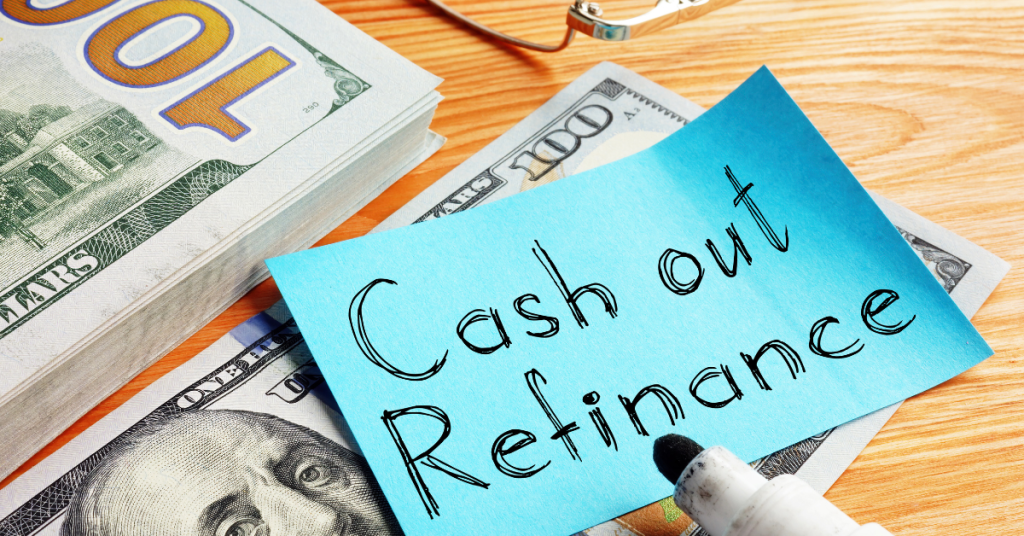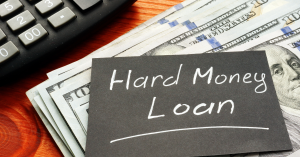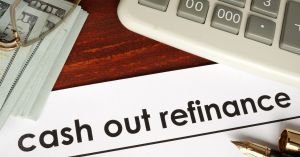Navigating the world of finances and loans can often feel complicated, particularly regarding refinancing (refi) options. However, the DSCR cash-out refinance financial strategy can benefit borrowers significantly. This loan method, which heavily relies on the DSCR, offers a fascinating combination of refi options and cash-out opportunities wrapped into one.
Whether you’re an experienced investor eyeing your next real estate portfolio or a homeowner wondering about refi prospects, understanding refi options can lead to remarkable financial windfalls. Guided by years of experience, I invite you to explore this financial strategy with untapped potential worth the plunge.
What is the DSCR Ratio
The DSCR Ratio is a financial metric that lenders use to assess borrowers’ ability to service their debt. It shifts the focus from credit score and personal income to the performance of an investment property.
To calculate DSCR, lenders consider the borrower’s annual gross rental income and yearly mortgage debt. It incorporates:
- The principal: This is the original loan amount before interest. The principal is part of the annual mortgage debt, and understanding how much of the rental income goes towards repaying the principal helps protect your property’s future ability to maintain a sufficient DSCR ratio.
- Interest: Most of your initial mortgage payments are directed towards settling the interest in many loan structures. Assessing the impact of interest payments on your net operating income can give a clearer picture of the DSCR ratio’s ebbs and flows over the loan’s lifetime.
- Taxes: As a property owner, you’re responsible for paying property taxes, which can significantly decrease the net income from the rental property. Including property tax in the DSCR calculation gives a more accurate depiction of the property’s profitability.
- Insurance: Insurance is another cost included in the DSCR calculation because it impacts the rental property’s profitability. Insurance expenses, as well as maintenance costs, can chip away at the net operating income.
A DSCR ratio greater than 1 indicates that a borrower could repay their loan from the expected income generated by the property. Therefore, a higher ratio can mean better loan terms, while a lower one may signal trouble to lenders.
The DSCR Loan Program
The DSCR mortgage, a Non-QM loan, is designed primarily for real estate investors. It’s unique because it focuses on a property’s profitability instead of the borrower’s income.
Lenders assess the ability to repay by reviewing the cash flow from the investment property, not the borrower’s W-2 or other personal income documentation. In such a setup, deductions for legitimate business expenses, including monthly loan payments, can help lower taxable income.
This is an attractive feature for many borrowers as these loan programs typically don’t require pay stubs or tax returns, given their emphasis on investment property performance.
DSCR Cash-Out Refinance
The debt service coverage ratio cash-out refinance is a popular strategy BRRRR (Buy, Rehab, Rent, Refi, Repeat) method. It’s a mortgage loan option investors use to borrow cash based on the property’s value without the need to pay off existing debts.
Here are some highlights of this method:
- It allows for the purchase of a rental property primarily with cash.
- If necessary, a fix and flip loan may be used to complete the property’s rehabilitation.
- Once the property is rehabbed and rented, investors can pull cash-out or refi following the DSCR ratio requirements.
DSCR mortgage offers an easy way to complete your project seamlessly and transition to the next venture without wasting time or tying up funds.
DSCR Cash-Out Refi Benefits
This refi loan type program presents multiple benefits for property investors, including:
More Cash Flow
- Refi could lead to a lower monthly mortgage payment, increasing your net cash flow
- The additional cash flow can fund future investments, positioning you for further financial growth
- In case of any unexpected expenses, your enhanced cash flow acts as a safety net
- Overall, an increased cash flow helps improve your lifestyle and financial wellness
Equity Access
- Equity can fund necessary renovations to your current properties
- Access to equity also enables you to comfortably pay off other debts and improve your financial health
Remember, the equity in your property can also help you acquire new rental properties, much like when you refinance a 2-1 buydown.
DSCR Cash-Out Refi Requirements

Securing a DSCR cash-out Refinance requires meeting several key prerequisites.
Debt Service Coverage Ratio (DSCR)
Each lender may have different cash flow requirements. For instance, some might want a DSCR of 1.25, while others may be satisfied with a minimum DSCR of 1. It’s similar to how much it costs to refinance your home mortgage, which can vary from lender to lender. Also, the lender may want to know the fair market rent of your investment to establish your ability to cover the loan payments.
Cash Flow
Positive cash flow is established by subtracting operating expenses from the property’s income. Lenders look favorably upon rental properties that generate consistent positive cash flow.
Credit Score
A creditworthiness indicator for lenders is your credit score; they generally prefer scores of 640 or higher. This requirement is similar to what you would need if you carried out a cash-out refinance on a manufactured home.
DSCR Cash-Out Refi Process
Successfully navigating the refinancing process requires understanding each step.
Initial Evaluation
Lenders will first assess your property’s cash flow and DSCR to determine whether you qualify for a loan using the rental income.
Loan Amount Calculation
Lenders will calculate the maximum loan amount based on the requirements of their DSCR program. Your net operating income (NOI), derived from your rental income, is a crucial factor in this calculation.
Application
On approval, the lender will clarify your monthly payments and ensure they meet DSCR requirements. Loans generally have a term of 12 to 36 months.
Closing
After your loan application is approved, lenders will refi your home mortgage and outline your expected monthly payments. Remember, the average closing costs of a refinance are part of this process, so be prepared to tackle these expenses.
Should You Consider a Debt Service Coverage Ratio Cash-Out Refi?

Choosing this refi option has many benefits. With a satisfactory DSCR, you can access your property’s equity and leverage it for various purposes. A healthy DSCR is vital, as it determines if you’ll get a loan. With potential tax deductions and increased cash flow, this refi offers a promising financial strategy for real estate investors.
To fully leverage these benefits, a well-chosen loan refi should focus on improving interest rates and offering suitable terms that suit specific circumstances. Lowering the existing interest rate is a significant part of any refi. It can lead to lower monthly payments, offering immediate financial relief and long-term savings.
From my in-depth encounters with refinancing models, I’ve learned that monitoring your DSCR ratio throughout the loan term can flag potential issues early and ensure a successful refi process. Ultimately, maintaining good financial health is key in DSCR cash-out refinance.
Frequently Asked Questions About DSCR Cash-Out Refinance
Can you refinance using a DSCR loan?
Yes, you can refi using a DSCR loan. This refinancing is designed specifically for landlords and property investors. It allows you to replace an existing mortgage with a new one, ideally at a lower interest rate. The decision to approve the refi is based on the cash flow earned from the investment more than the borrower’s income.
How does a DSCR refinance work?
A DSCR refi reviews the income generated from your rentals rather than your income. Your annual debt (like mortgage, insurance, and taxes) is divided by the property’s net operating income (gross income minus operating expenses) to calculate the DSCR. Lenders look for a DSCR greater than 1, indicating the rental investment makes enough money to cover the debt.
How soon can you refinance from a DSCR loan?
The ability to refi out of a debt service coverage ratio loan primarily depends on the terms of your current DSCR loan program. Some loans come with a prepayment penalty which might discourage refinancing before a specific period. However, if the terms are favorable, you could refi when you see financial benefits like property value increase, interest rates drop, or improved rental income resulting in a better DSCR.






